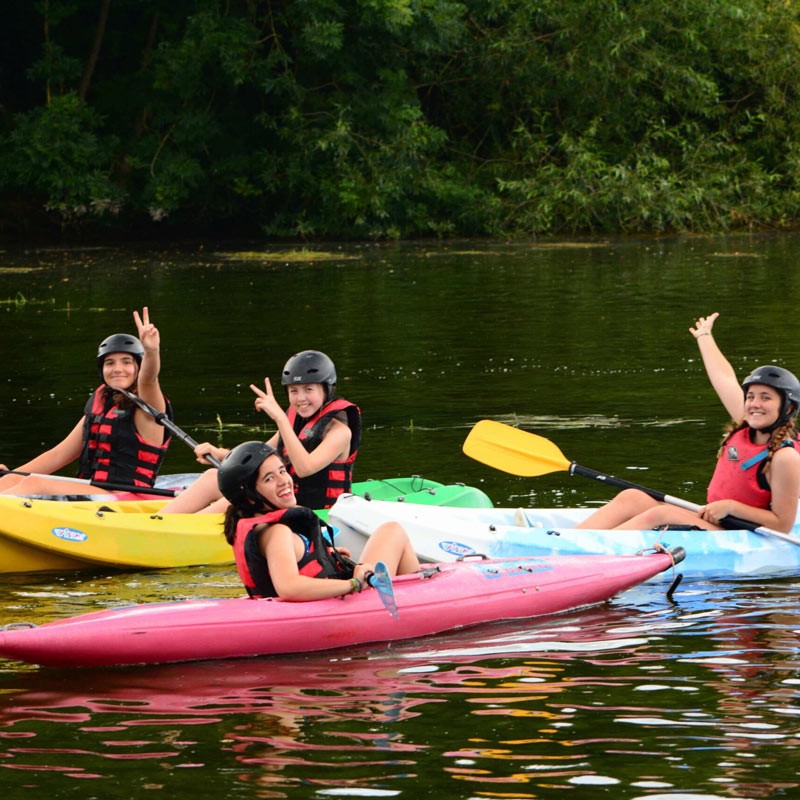
Muy mala experienciaMi hija estudia tercero de Magisterio Infantil y en LAI ofrecen Prácticas en Colegios de Irlanda. En la información que ofrece LAI dice que como objetivo está, entre otros, el perfeccionamiento del idioma inglés. Para ello incluye “Alojamiento en casa irlandesa en régimen de pensión completa de lunes a domingo y en habitación individual. Será el único hispano parlante.”. Pues bien, un día antes de viajar con todo el viaje comprado, las tasas pagadas y sin margen de maniobra nos llama el responsable de LAI y nos dice que por cambios de última hora va a haber otra española quedándose con la familia. Increíble.En Irlanda asignan a mi hija a la familia de Sandra y Desmond Kavanagh. Otra experiencia decepcionante. Claramente la familia hace esto como un negocio. En la casa llega a haber hasta 5 estudiantes a la vez. El señor de la casa no tenía ninguna interacción con nosotras. Cenábamos solas con alguna interacción ocasional con la señora unos pocos días. Era el mes enero, con mucho frío en Dublin, y la calefacción estaba desactivada la mayor parte del tiempo, quedándose la casa muy fría. Propusimos comprar nosotros un calentador y dijeron que la electricidad era muy cara y ofrecieron una manta y una bata además de enfadarse la señora y hablar de muy malos modos.En una de las cenas pusieron carne a unas estudiantes y a mi hija tres palitos de pescado. El día de regreso de nuestra hija no bajan ni a despedirse. Mi hija envía un whatsapp de despedida y nunca respondieron.En el colegio no me asignaron ningún tutor como decía la información de LAI y por supuesto nunca me enviaron el “Informe de evaluación (Tutort's Report)” como parte de la Certificación de Prácticas que ofrecían. El colegio no estaba organizado para que estudiantes extranjeros puedan conocer el sistema educativo irlandés y el funcionamiento de sus centros ya que no daban ninguna tarea a realizar ni explicaban nada.Para una experiencia tan mala que no permite cumplir ninguno de los objetivos recomendamos que no contraten con LAI y hagan la práctica en España en un colegio español. Para nosotros fueron 2.500 euros tirados a la basura.
Mi hijo feliz le vino muy bien ya tiene el FCE.LAI fue mi mejor elección. No busques más LAI es la mejor, por el trato a la familia y al alumno, por el colegio elegido por la familia irlandesa. Siempre me han respondido y mi hijo ha vivido una gran experiencia.THANKS A LOT. RAQUEL
Magnífica gestión y un trato muy cercano. Nuestra hija hizo un curso entero en Irlanda y fue una experiencia inmejorable. Ella estuvo perfectamente guiada y cuidada y nosotros siempre atendidos.
En general muy mal , el colegio sin instalaciones y radicalmente opuesto a lo que nos dijeron , como dato no tenían ni patio ni comedor los chicos….respecto a la familia no había sido testada por LAI como nos dijeron , la propia familia nos los reconoció, la casa lejos de todo y la familia muy poco involucrada en interactuar con el niño. Lamentable la experiencia con LAI nunca recomendaría esta agencia a nadie
Una de nuestra hijas cursó 1º de bachillerato en Dublín, en un internado y otra cursó 4º de la ESO y estuvo con una familia maravillosa también en Dublín. Las dos experiencias han sido extraordinarias! No han podido estar mejor atendidas y por su puesto, su objetivo con el idioma, totalmente alcanzado.No podemos estar mas agradecidos.Hemos recomendado LAI a todos los que nos preguntan.
Hemos tenido la suerte de mandar a dos hijas nuestras (Gema y Almudena) con LAI a Dublín, y no podemos estar, mas contentos con el trato recibido, como se ocuparon y preocuparon de nuestras niñas.Solo tenemos palabras de agradecimiento para todo el personal de LAI tanto en Madrid como en Dublín, una organización muy muy recomendable.
Encantados con el trabajo de LAI, con todo el trabajo y gestiones, del año académico en Irlanda de nuestra hija, recomendable al 100%. Gracias por todo.
Una compañía estupenda y profesionales de lujo que nos han ayudado en todo momento, todo ha sido inmejorable. La recomiendo al 100%!! He tenido la tranquilidad y seguridad de que mi hija estaba atendida y cuidada. La Familia extraordinaria, el curso ha sido super enriquecedor por tanto una experiencia maravillosa. Agradezco la seriedad y el cuidado de las cosas importantes. En especial Gracias a Shioban por tu atención y dedicación de 10.
Una experiencia muy bonita. Estuve en Finlandia, en una pequeña ciudad llamada Tampere haciendo prácticas de Educación. Mi estancia fue muy satisfactoria y pude disfrutar mucho tanto de las prácticas como de la vida allí, muy diferente y enriquecedora.Un país muy bonito, tranquilo y que permite aprender mucho!
Mi hija ha cursado 1º de Bachillerato en Dublín a través de LAI. La experiencia ha sido muy buena. LAI hizo la gestión de manera rápida y fácil durante todo el año académico, eligió una muy buena familia, por lo que mi hija ha estado encantada (tanto que quería repetir). En este sentido, agradezco a Siobhan y su equipo la profesionalidad demostrada, así como su amabilidad y buen hacer. Gracias!
Tras haber concluido el curso escolar de mi hija en Irlanda (Transition Year) organizado por LAI, no solo puedo tener palabras de agradecimiento tanto a Siobhan como a todo su equipo, que ante cualquier problema surgido, siempre eras la prioridad para encontrar la solución más rápida. A nivel personal, mi hija ha madurado enormemente y ahora es una persona más abierta y extravertida. Sin duda, lo recomendaría 100%.
Como madre he de decidir que Lai es una agencia seria y profesional. Cualquier problema que ha surgido ha sido solventado rápidamente y de manera satisfactoria. Nuestra hija ha hecho 4º ESO (Transition Year), para ella ha sido todo una experiencia y lección de vida. Tanto el colegio como la familia han sido de 10, inmejorable. La familia la han tratado como una hija más incluso mejor y el colegio tiene profesores muy profesionales, con amplia oferta de actividades para realizar por los alumnos. Se nota que es un colegio con alta reputación.Agradecemos muy especialmente a Lai la oportunidad que ha dado a nuestra hija para vivir esta experiencia inolvidable. Por supuesto a la familia por el trato tan exquisito a nuestra hija y al colegio por haberla formado. Muchas gracias a todos. Lourdes




















